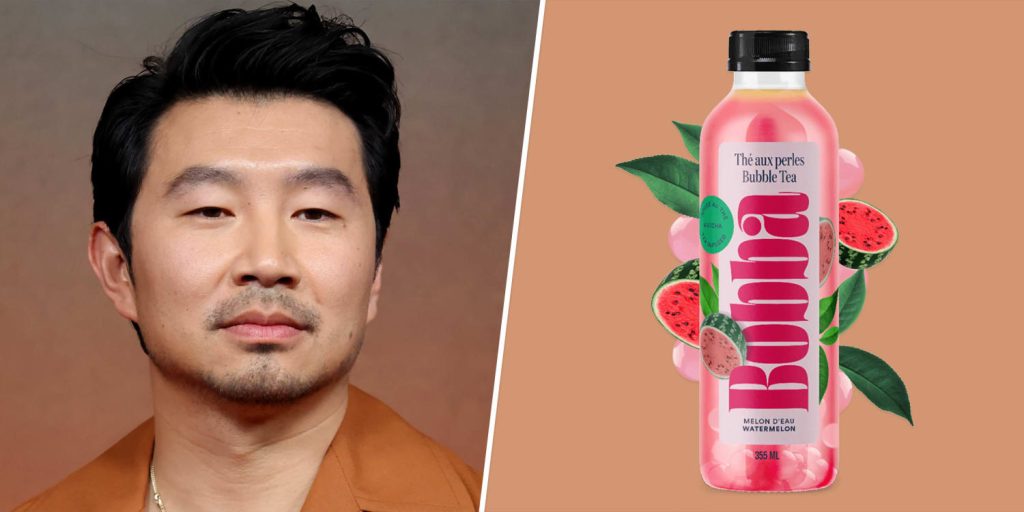Boba tea company apologises over Canada Dragons’ Den row
3 min read
Actor Simu Liu was critical of a new boba company on Canada's "Dragons' Den."Getty Images, bobbadrink.com

Actor Simu Liu was critical of a new boba company on Canada's "Dragons' Den."Getty Images, bobbadrink.com
A Canadian boba tea company has issued a public apology after actor Simu Liu accused them of cultural appropriation during an episode of the reality TV series Dragons’ Den. The Quebec-based bubble tea brand, known as Bobba, pitched their drink to potential investors, including Liu, claiming they were “disturbing” the bubble tea market with their simplified approach to the beverage.
In the episode aired on CBC, the owners, Sebastien Fiset and Jess Frenette, argued that their product transformed bubble tea into a “convenient and healthier” experience by using just three ingredients. Liu, a Canadian-Chinese actor best known for his role in Shang-Chi and the Legend of the Ten Rings, pushed back against their claims. He expressed concern over their portrayal of bubble tea, a Taiwanese drink known as boba, which has gained international popularity.
Liu stated, “I’m concerned about this idea of disrupting or disturbing bubble tea. There’s an issue of taking something that’s very distinctly Asian in its identity and ‘making it better,’ which I have an issue with.” He further questioned whether the founders had staff who understood the cultural significance of the drink, made from tapioca balls.
In response, Fiset mentioned that their “best partner” was based in Taiwan, where recipes and products were sourced. However, this explanation did little to quell the backlash on social media, where users criticized the founders for their perceived insensitivity.
On Monday, the owners took to social media to apologize for the “harm” caused by their words and actions on the show. “Simu Liu raised very valid points regarding cultural appropriation, and we welcome this learning opportunity,” they stated. They committed to re-evaluating their branding, packaging, and marketing strategies to ensure a respectful representation of their Taiwanese partnership and the cultural roots of bubble tea.
Simu Liu also spoke out on social media, attempting to de-escalate tensions. He clarified that he did not believe the entrepreneurs deserved harassment, despite his decision not to invest in Bobba’s pitch for a $1 million investment in exchange for an 18% stake. “That doesn’t mean that I believe that they deserve harassment,” he explained in a video addressing the situation.
Manjit Minhas, another judge on the show, initially supported the entrepreneurs, arguing that innovation in traditional foods could be acceptable. However, after observing the social media backlash and reflecting on the opinions of viewers, she reversed her decision. Minhas announced via Instagram that she would not be investing in Bobba Tea, stating, “After more reflection, due diligence, and listening to many of your opinions, I will not be investing in Bobba Tea.”
In her video, Minhas expressed that she had to turn off comments on her social media accounts due to the abusive messages she received since the episode aired. “It is never OK to send hate and threatening messages to the entrepreneurs,” she added, emphasizing that constructive criticism should not escalate to harassment.
The incident highlights the ongoing discussions around cultural appropriation, particularly in the food industry, where the lines between inspiration and appropriation can often blur. Liu’s intervention underscores the importance of recognizing and respecting the cultural significance behind traditional foods, which often have deep-rooted histories and connections to their origins.
As the conversation continues, the owners of Bobba have acknowledged the need for a more thoughtful approach to their business and its cultural implications. Their commitment to reevaluating their practices reflects a growing awareness in the industry about the importance of honoring cultural identities in a diverse society.
The outcome of this controversy remains to be seen, but it has opened up a dialogue about cultural sensitivity, representation, and the responsibility of entrepreneurs in an increasingly interconnected world.